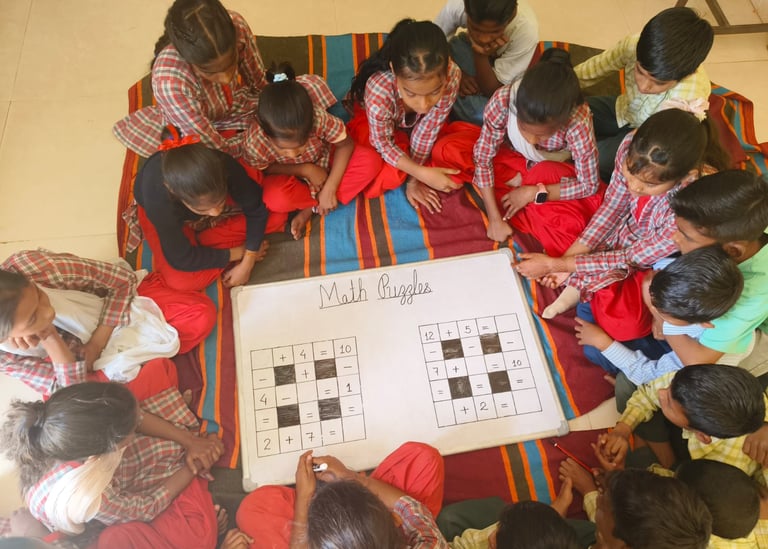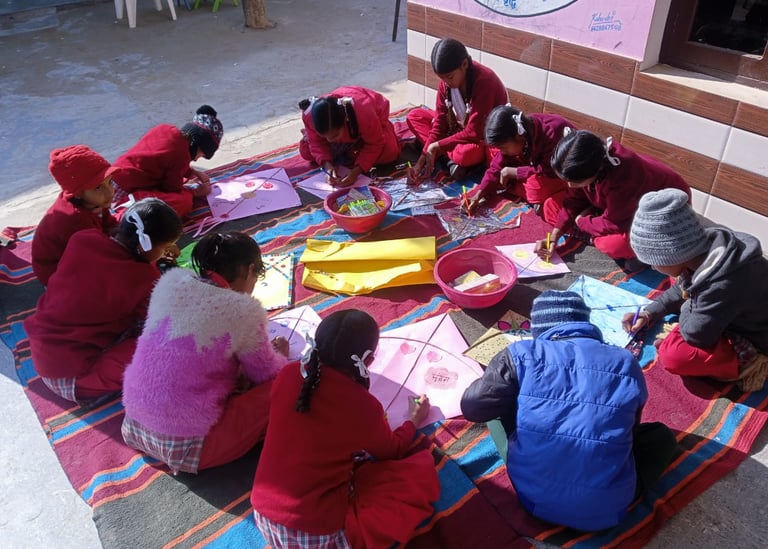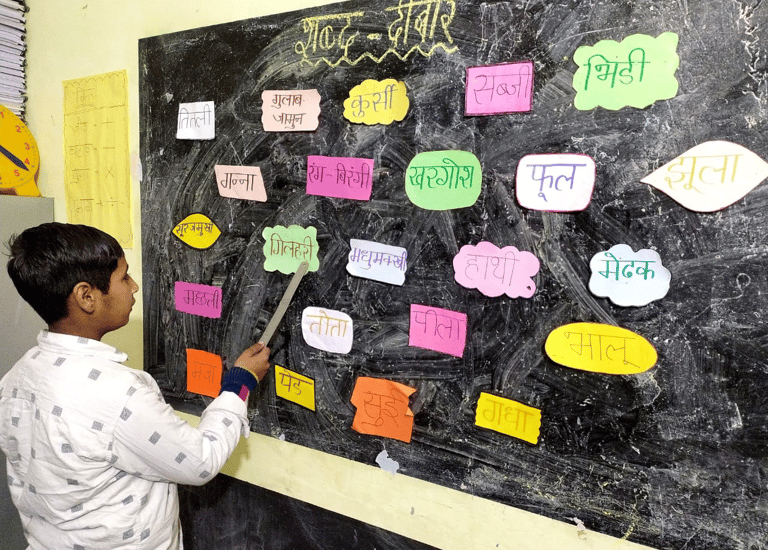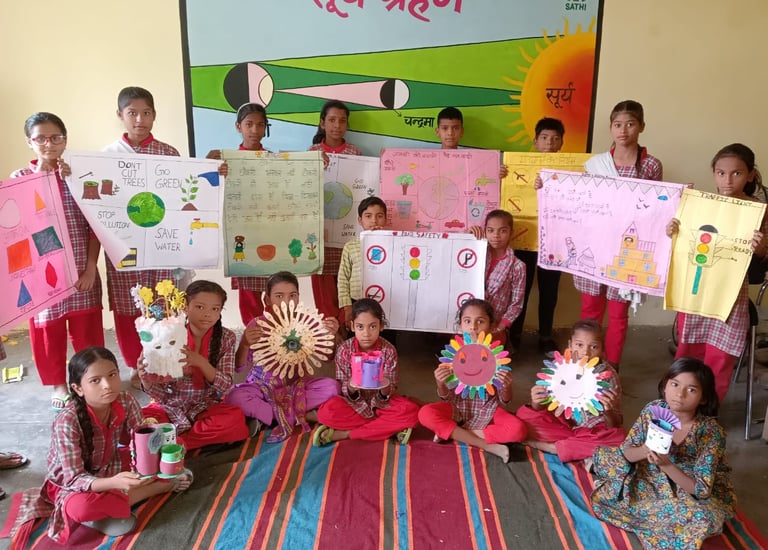Project Aarambh
Impact Outcomes
Children acquire FLN skills aligned with NIPUN Bharat Mission
Increased re-enrollment and reduced dropouts
Improved learning confidence among children
Strengthened community ownership of education
Partnerships & Collaboration
Project Aarambh is implemented in collaboration with:
Government schools and local education departments
Community-based organizations and grassroots volunteers
CSR and philanthropic donors who believe in equitable education
Village Education Committees and Panchayati Raj Institutions
Vision Ahead
We aim to expand Project Aarambh to multiple districts across India, creating a replicable model for remedial learning, and supporting India’s journey toward universal foundational education under SDG 4 and the NEP 2020 vision.








Remedial Education for Foundational Literacy & Numeracy (FLN)
A second chance to learn, a new beginning to grow.
Project Aarambh is an inclusive remedial education initiative of Impact Life Foundation, designed to ensure that every child aged 6–14 years from underprivileged backgrounds acquires Foundational Literacy and Numeracy (FLN) skills. It offers targeted support to children who are out of school or lagging behind in basic education due to poverty, migration, or disrupted schooling.
Target Beneficiaries
Children between the ages of 6–14 years who:
Have never been to school or have dropped out
Attend school but lack age-appropriate literacy and numeracy
Come from Below Poverty Line (BPL), tribal, migrant, or underserved communities
Are first-generation learners
Program Goals
Bridge learning gaps in language and numeracy
Build confidence and interest in education
Prepare children for reintegration into mainstream schooling
Engage parents and communities in their child’s learning journey
Methodology
1. Baseline Assessment:
Each child is assessed on reading and math skills to identify learning levels.2. Level-Based Teaching:
Children are grouped by skill level, not age, and taught through fun, interactive sessions using TLMs (Teaching Learning Materials).3. Flexible Learning Sessions:
Conducted through community learning centers or school-based support sessions for 2–3 hours daily or on weekends.4. Trained Local Facilitators:
We train youth and community members to deliver age-appropriate, inclusive, and engaging remedial education.5. Continuous Monitoring:
Regular progress tracking with midline and endline evaluations to measure improvement.6. Parent & Community Engagement:
We conduct meetings, home visits, and awareness drives to ensure family support and community ownership.
Why 'Aarambh'?
In Hindi, “Aarambh” means beginning—a symbolic fresh start for children who have been left behind. It reflects our belief in every child’s potential to learn, thrive, and lead a better life when given the right support at the right time.
Multiple national and international surveys have highlighted the urgent need for foundational learning interventions in India. According to the Annual Status of Education Report (ASER) 2023, over 25% of children in Grade 3 are unable to read a basic Grade 1-level text, and only 20% can perform basic subtraction. These figures indicate a significant gap between age and learning levels, particularly in rural and low-income communities. Similarly, the National Achievement Survey (NAS) 2021 found that students in classes 3, 5, and 8 scored below 50% in basic learning outcomes in language and mathematics, with children in government schools faring much worse.
The UNESCO Global Education Monitoring Report 2022 further estimated that nearly 70% of 10-year-olds in South Asia, including India, are unable to read and comprehend a simple sentence — a clear indicator of widespread learning poverty. To address these gaps, the Government of India launched the NIPUN Bharat Mission in 2021, emphasizing the importance of achieving foundational literacy and numeracy (FLN) by Grade 3. The guidelines strongly recommend remedial and community-based learning programs as effective strategies to improve foundational skills.
These findings underline the urgent need for targeted interventions like Project Aarambh, which aims to equip underprivileged children with the literacy and numeracy skills essential for academic success and lifelong learning
